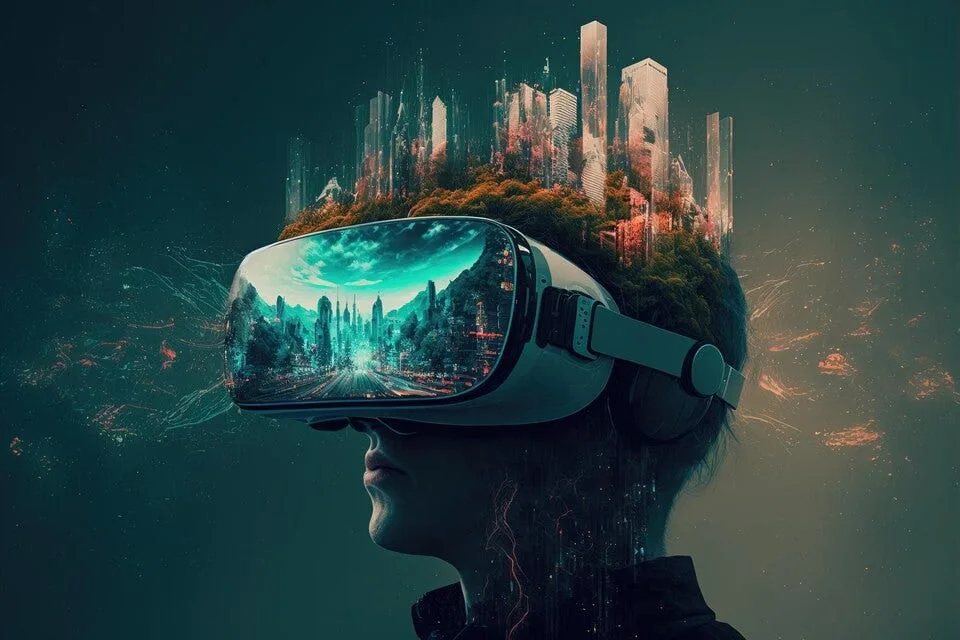The Metaverse: A Virtual Frontier
The concept of the metaverse has been gaining significant attention in recent years. It is a virtual reality space where users can interact with a computer-generated environment and other users in real-time. The metaverse is not a new concept, but advancements in technology have made it more accessible and immersive than ever before.
In the metaverse, users can create avatars, explore virtual worlds, engage in social activities, and even conduct business transactions. It offers a limitless range of possibilities, from attending virtual concerts and conferences to shopping in virtual stores and participating in virtual sports.
The Evolution of the Metaverse
The metaverse has come a long way since its inception. It started with simple text-based virtual worlds in the 1970s and has evolved into complex, visually stunning environments. The rise of virtual reality (VR) and augmented reality (AR) technologies has played a significant role in this evolution.
VR headsets, such as the Oculus Rift and HTC Vive, allow users to fully immerse themselves in the metaverse. They can explore virtual worlds as if they were physically present, enhancing the sense of presence and interactivity. AR, on the other hand, overlays virtual elements onto the real world, creating a mixed reality experience.
With the advent of blockchain technology, the metaverse has also become more decentralized and user-driven. Blockchain-based platforms enable users to own and trade virtual assets, such as land, items, and even virtual currencies, within the metaverse. This has opened up new opportunities for creators and entrepreneurs to monetize their creations and build virtual businesses.
The Impact of the Metaverse
The metaverse has the potential to disrupt various industries and reshape the way we live, work, and play. Here are some areas where its impact is already being felt:
1. Entertainment and Media
The entertainment industry has been quick to embrace the metaverse. Virtual concerts, gaming tournaments, and live streaming events have become popular forms of entertainment. Artists and content creators can reach a global audience without the limitations of physical venues. This opens up new revenue streams and opportunities for collaboration.
2. Education and Training
The metaverse has the potential to revolutionize education and training. Virtual classrooms and simulations can provide immersive learning experiences, allowing students to explore historical events, conduct scientific experiments, and practice real-world skills in a safe and controlled environment. This can make education more engaging, accessible, and personalized.
3. Business and Commerce
Virtual stores and marketplaces within the metaverse offer new avenues for businesses to reach customers. Brands can create virtual showrooms to showcase their products, and users can try on virtual clothes or test virtual prototypes before making a purchase. Virtual currencies and blockchain technology also enable secure and transparent transactions within the metaverse.
Navigating the Virtual Frontier
As the metaverse continues to expand, it is essential to navigate this virtual frontier responsibly and ethically. Here are some considerations:
1. Privacy and Security
With the increasing amount of personal data being shared within the multiverse, privacy and security become paramount. Users need to be aware of the risks and take necessary precautions to protect their personal information. Platform developers should also prioritize data protection and implement robust security measures.
2. Digital Inclusion
Efforts should be made to ensure that the multiverse is accessible to everyone, regardless of their socioeconomic status or physical abilities. This includes providing affordable VR/AR devices, improving internet infrastructure, and designing user interfaces that are intuitive and inclusive.
3. Ethical Use of AI
The multiverse relies heavily on artificial intelligence (AI) to create realistic and interactive virtual environments. However, ethical considerations must be taken into account when developing AI algorithms. Transparency, fairness, and accountability should be prioritized to prevent the misuse of AI within the multiverse.
Conclusion
The metaverse represents a new frontier in the digital realm, offering endless possibilities for interaction, entertainment, and commerce. As it continues to evolve, it is crucial to navigate this virtual landscape responsibly and ensure that it benefits all users. By addressing privacy and security concerns, promoting digital inclusion, and upholding ethical standards, we can make the metaverse a truly transformative and inclusive space.

































